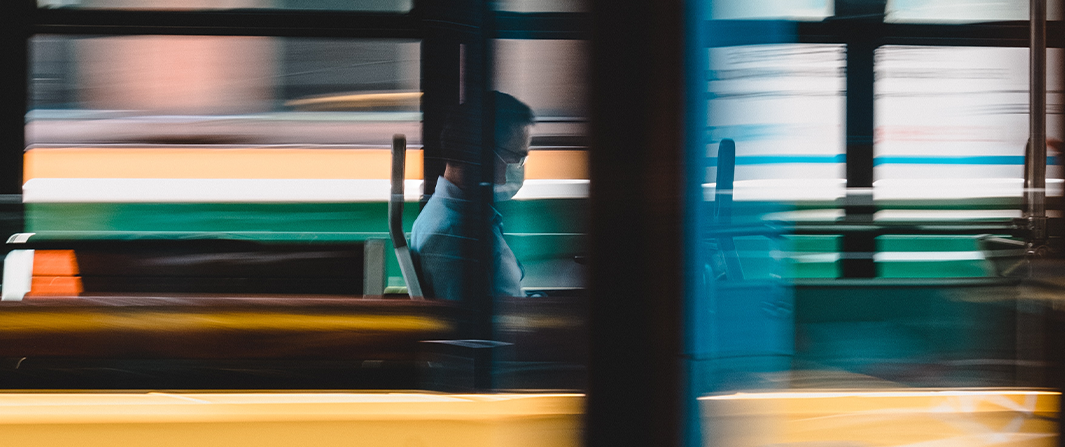Changes to remote work, mandatory isolation and testing
The Portuguese Government announced new measures to fight the covid-19 pandemic, following one of the last Council of Ministers meetings before the legislative elections of January 30th. After hearing experts and health authorities earlier in the week, Prime-Minister António Costa announced several changes.
The Council of Ministers met this Thursday, January 6th and decided to make adjustments and changes to the measures put in place to stem the progress of the Covid pandemic in Portugal. After the morning meeting, Prime-Minister António Costa spoke to the national media and revealed that several provisions will be adjusted considering the progression of the pandemic.
The end of prophylactic isolation for those with the third dose of a Covid-19 vaccine is of particular note. Isolation remains mandatory for positive cases and for people living together with those infected. People infected with Covid-19 but asymptomatic/with mild disease, or who are high-risk contacts, will now have their isolation time reduced to seven days.
People vaccinated with the third dose for more than 14 days are also exempt from mandatory testing to enter nursing homes, visit patients in healthcare facilities, or attend large events and events without assigned seating or in makeshift venues, and sports venues. A Digital Certificate of Vaccination will be the only requirement to access restaurants, tourism facilities, cultural shows, events with assigned seating, cinemas and gyms. The information about the third dose will appear on the Digital Certificate.
Remote working will remain compulsory until January 14th , after which it will become recommended.
At the press conference, Prime-Minister António Costa summarised the most recent efforts to contain the pandemic. Portugal is vaccinating an average of 84,000 people per day, with 89% of the entire population having already finished the first round of vaccination and more than 3 million having already received a reinforcement dose. In addition, more than five million tests were carried out in December and António Costa highlights the importance of this milestone.
The Prime Minister therefore affirms that the pandemic situation in the country is now better than a year ago, which is reflected in a much lower number of hospitalisations, outbreaks and deaths compared to the same period. Despite high transmissibility, the Omicron variant is having less negative impact on the country. This Thursday, a record of more than 39.000 new Covid cases were detected in Portugal, but only 25 lives were lost, a 75% decrease when compared to the same period of 2021. High levels of vaccination are credited for this decrease in mortality.
However, the successive record numbers of new infections and the lack of knowledge about the possible existence of serious long-term sequelae after contracting the Omicron variant justify caution, and the maintenance of various health rules and recommendations.
Measures implemented from the 10th of January onward
REMOTE WORKING
- Compulsory remote work will remain in effect until January 14th. Remote working will change from “mandatory” to “recommended” from that time onwards.
NIGHT ENTERTAINMENT
- Bars and nightclubs will be allowed to reopen after the 14th of January.
- Consumption of alcoholic beverages will be prohibited in outdoor spaces accessible to the public and on public roads, with the exception of open terraces of restaurants and similar establishments duly licensed for that purpose.
ACCESS TO PUBLIC ESTABLISHMENTS
- The previous limits are maintained, with a maximum occupancy of one person per 5m2
- Access to tourist or local accommodation establishments, events and shows, and gyms will now depend on presenting the EU COVID Digital Certificate.
- The obligation to present a Digital Certificate to access restaurants is maintained.
- The requirement to present a negative test will be maintained for access to bars and nightclubs, access to large events, visits to nursing homes and visits to health care establishments, except for those who can prove they have been vaccinated for at least 14 days with a booster dose of a Covid-19 vaccine.
SHOPPING
- Bans on sales and other promotional practices will end, although the limit of one person per 5 square meters will be maintained in establishments.
CROSS BORDER TRAVEL
- Special measures on testing for international flights are extended until February 9th 2022, as well as the appropriate sanctions for non-compliance.
EDUCATION
- Schools will be able to resume classes in person as of January 10th.
ISOLATION
- Isolation period for people infected with Covid-19 but asymptomatic or with mild disease, or for people who are high-risk contacts, is reduced to seven days.
- People with a booster dose of Covid-19 vaccine are exempt from prophylactic isolation period, which will be reserved for infected individuals and their cohabitants only.
- In schools, an outbreak of infections in one class will not require isolation of that class as a whole.





